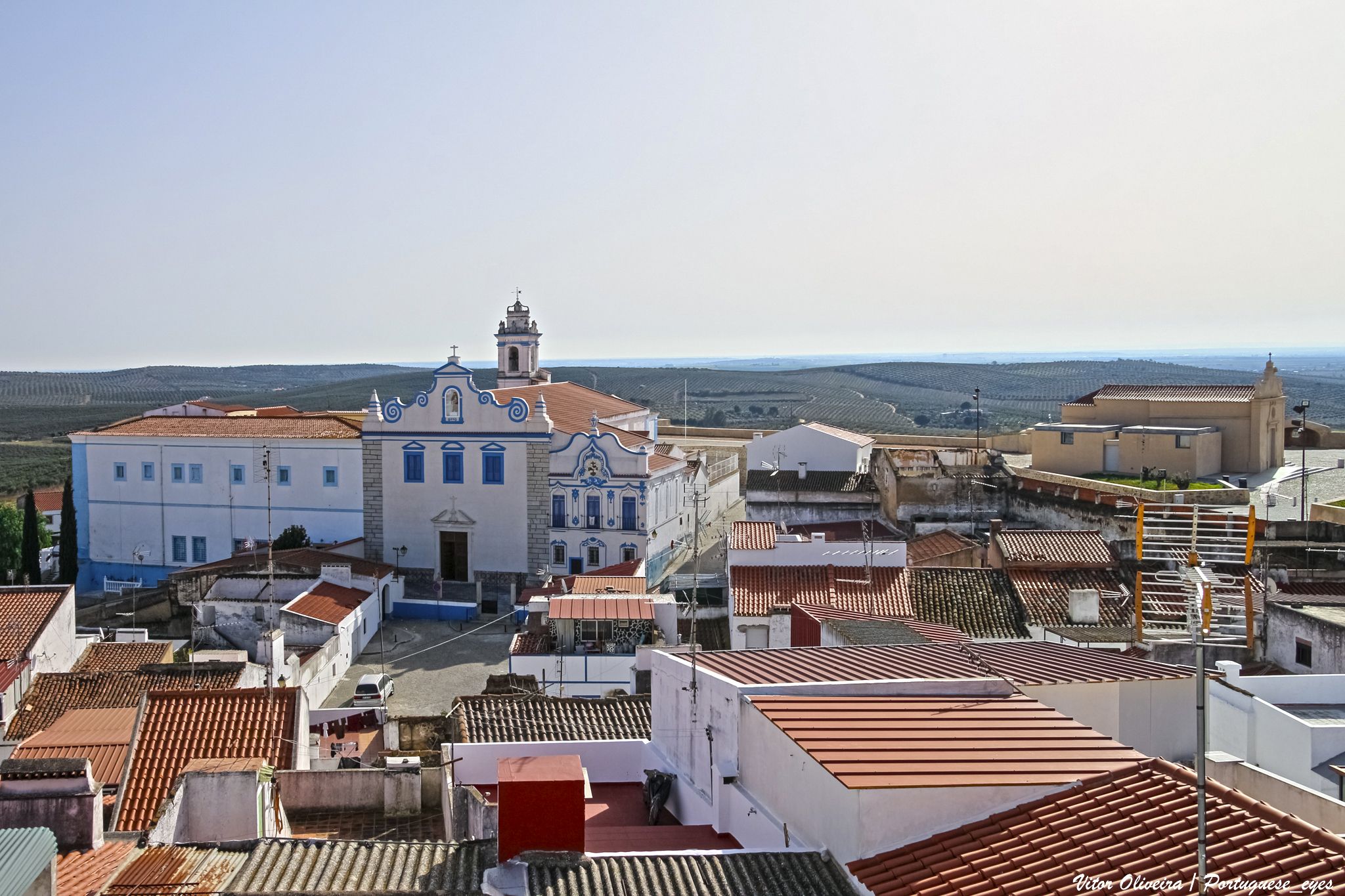
Introduction
As a foreign investor, buying property in Portugal can be an excellent opportunity to diversify your investment portfolio and potentially earn a good return. Portugal has become a popular destination for real estate investments due to its stable economy, affordable property prices, and attractive tax incentives. In this guide, we will explore why investing in Portugal’s property market is a smart move and the benefits it offers to foreign investors.
Why Invest in Portugal’s Property Market
Stability and Strong Economy: Portugal’s stable real estate market and strong economy make it an attractive investment option. The country has had a stable democracy since 1974 and is part of the European Union, providing a secure framework for investment.
Affordability: Portugal offers a low cost of living and advantageous tax system that benefits real estate investors. Property prices in Portugal are still relatively affordable compared to other European countries, providing potential for a good return on investment.
Growth Potential: Portugal’s real estate market outlook is positive, with increasing demand in the rental market and a high quality of life. The country attracts tourists year-round, generating additional income through rental properties.
Benefits of Buying Property in Portugal for Foreign Investors
- Golden Visa Program: The Portuguese government’s Golden Visa program offers a path to citizenship for investors, providing benefits such as visa-free travel, access to education and healthcare, and potential tax advantages.
- Tax Advantages: Portugal’s tax system is favorable for real estate investors. The country offers tax breaks and exemptions, reducing the overall tax burden on property owners.
- EU Membership: Being part of the European Union gives investors access to a wider market and various opportunities. EU membership adds to the stability and attractiveness of Portugal’s real estate market.
- Cultural Richness and Natural Beauty: Portugal’s temperate climate, rich cultural heritage, and culinary delights make it a captivating destination. Investors can enjoy the beauty of the country while benefiting from their real estate investments.
In conclusion, buying property in Portugal offers foreign investors a range of benefits, including stability, affordability, and attractive tax incentives. The country’s strong economy, quality of life, and cultural richness make it an appealing choice for real estate investment. So, if you’re considering diversifying your investment portfolio, Portugal’s property market is definitely worth exploring.

Understanding the Property Market in Portugal
Portugal has become an increasingly popular destination for foreign investors looking to buy property. The country’s sunny climate, beautiful beaches, rich history, and relaxed lifestyle make it an attractive choice for both vacation homes and permanent residences.
Current Trends and Key Locations
In recent years, Portugal’s property market has been steadily growing, with property prices on the rise. The market offers a wide range of properties, including modern apartments, townhouses, villas, and traditional Portuguese houses. The cost of properties varies based on factors such as location, size, and age.
Some of the most popular areas for property buyers in Portugal include the Algarve, Lisbon, Porto, and the Silver Coast. Each area has its own unique charm and attractions, so it’s important to research which area suits your needs best.
Rental potential is another advantage of investing in property in Portugal. The country’s popularity as a tourist destination means that rental properties can provide a good return on investment, especially in tourist hotspots. However, it’s crucial to research local rental regulations before making an investment.
Legal and Regulatory Framework for Foreign Investors
Foreign investors enjoy the same rights as Portuguese citizens when it comes to buying property in Portugal. There are no restrictions on foreign investors purchasing property, except for certain restrictions if you are applying for a Golden Visa. However, it’s important to note that there is a minimum investment amount required.
The buying process for foreigners involves obtaining a tax number, preparing necessary documents, negotiating a draft of the promissory contract, making the contract payment, and completing the transaction. While visiting Portugal is not mandatory for buying property, it is advised to inspect the property for peace of mind.
When purchasing property, there are additional costs to consider, such as Stamp Duty and Property Transfer Tax. It’s also recommended to work with professionals who can advise on tax-related matters and ensure compliance with Portuguese tax regulations.
In conclusion, buying property in Portugal can be an attractive investment opportunity. Understanding the property market, legal framework, and key locations is essential for making informed decisions. By conducting thorough research and working with experts, foreign investors can navigate the buying process smoothly and enjoy the benefits of owning property in Portugal.

Types of Properties in Portugal
When it comes to buying property in Portugal, there are various options to choose from. Here are two common types of properties that you’ll come across:
Apartments, Villas, and Townhouses
Apartments: Apartments are a popular choice for both locals and foreigners looking to invest in Portuguese real estate. They come in various sizes and can be found in both urban and coastal areas. Apartments often offer amenities such as swimming pools, gyms, and security systems, making them an attractive option for those seeking a convenient and low-maintenance lifestyle.
Villas and Townhouses: If you prefer a larger and more private residence, villas and townhouses are worth considering. These properties typically come with spacious gardens or courtyards, allowing for outdoor relaxation and entertainment. They are commonly found in residential areas and offer more privacy and independence compared to apartments.
New Developments vs. Resale Properties
When buying property in Portugal, you’ll also have the choice between new developments and resale properties. Here’s an overview of both options:
New Developments: New developments refer to properties that are recently constructed or still under construction. These properties often come with modern designs, state-of-the-art amenities, and energy-efficient features. Investing in a new development allows you to be the first owner and enjoy the perks of a brand-new property.
Resale Properties: Resale properties, on the other hand, are existing homes that have been previously owned and are now up for sale. These properties may come with their unique character and charm, and they are often located in established neighborhoods. Buying a resale property can be an excellent option if you prefer a property with a history, or if you’re looking for a more affordable option compared to new developments.
In summary, when buying property in Portugal, you’ll have the opportunity to choose between different types of properties, such as apartments, villas, and townhouses. Additionally, you can decide whether to invest in a new development or a resale property, based on your preferences and budget. Remember to consider factors like location, amenities, and potential rental income when making your decision.
Financing and Tax Considerations
When it comes to buying property in Portugal as a foreign investor, there are important financing and tax considerations to keep in mind. Understanding the mortgage options available and the tax implications can help you navigate the buying process more effectively.
Mortgage Options for Foreign Investors
When purchasing property in Portugal, both residents and non-residents can apply for a mortgage from Portuguese banks. The maximum loan amount will depend on the loan-to-value ratio, which is the ratio of the loan amount to the value of the property. Variable mortgage rates in Portugal typically start at 3.3% per year, while fixed rates are available at 4.1% for up to five years.
One of the key benefits of taking out a mortgage in Portugal is that the lender will carry out legal checks on the property and arrange for a valuation. Additionally, if you decide to rent out your property, the rental income in euros can help offset or cover your mortgage payments.
Tax Implications and Incentives for Property Buyers
When purchasing property in Portugal, there are several taxes and fees to consider. These include Stamp Duty, which is 0.8% of the value of the property, and Property Transfer Tax, which is typically 5-7% of the purchase price.
However, there are also tax incentives in place to attract foreign investors. For example, Portugal offers the Golden Visa program, which grants residency to investors who make a qualifying investment in the country. This program can provide several benefits, including ease of travel within the Schengen Area and potential tax advantages.
It’s important to work with professionals who are familiar with the tax laws and regulations in Portugal to ensure you are fully compliant and able to take advantage of any relevant tax relief.
By considering the available mortgage options and understanding the tax implications, you can make informed decisions when buying property in Portugal as a foreign investor.
For more detailed information on these topics and to explore the available properties in Portugal, you can contact Vasco-Invest.

Working with Real Estate Agents and Lawyers in Portugal
When it comes to buying property in Portugal as a foreign investor, it is essential to work with reliable real estate agents and lawyers who are familiar with the local market and legal processes. Here are some key steps to consider when working with professionals in Portugal.
Choosing a Reliable Agent or Lawyer
Real Estate Agents: It is crucial to choose a reputable real estate agent who can guide you through the buying process and help you find the right property. Look for agents who have experience working with foreign investors and who are knowledgeable about the specific area you are interested in. They can provide valuable insights and assist in negotiating the best deal.
Lawyers: Engaging a reliable lawyer is essential to ensure a smooth and legal transaction. They will help review property documentation, perform due diligence, and draft the necessary contracts. Choose a lawyer who specializes in real estate law and has experience working with foreign investors. They can protect your interests and ensure compliance with Portuguese regulations.
Property Viewing and Due Diligence Process
Property Viewing: Once you have identified potential properties, your agent will arrange property viewings for you. Make sure to visit and inspect the property personally to assess its condition, location, and suitability for your needs.
Due Diligence: Your lawyer will conduct a thorough due diligence process to verify the legal status of the property. This includes checking property ownership, existing mortgages or liens, and any other legal issues that may affect the purchase. They will also ensure that all necessary permits and licenses are in place.
To summarize, working with reliable real estate agents and lawyers is crucial when buying property in Portugal as a foreign investor. They will guide you through the entire process, protect your interests, and ensure a smooth transaction. Take the time to choose reputable professionals who have experience with foreign investors and the local market.

The Buying Process in Portugal
As a foreign investor, buying property in Portugal can be an exciting venture. With its thriving real estate market and attractive investment opportunities, Portugal offers a favorable environment for those looking to purchase property. However, it is essential to understand the buying process and navigate through the necessary procedures. Here is a comprehensive guide to help you through the process of buying property in Portugal.
Reservation Agreement, Promissory Contract, and Deed of Sale
The buying process in Portugal typically involves three main steps: the reservation agreement, promissory contract, and deed of sale.
- Reservation Agreement: Once you have found the property you wish to purchase, you will need to make a reservation and show your intent to buy. This process involves signing a reservation agreement and paying a reservation fee, which takes the property off the market and allows time for your lawyer to conduct due diligence and check the property’s documents and licenses.
- Promissory Contract: After completing the due diligence, the next step is signing the promissory contract. This legally binding contract outlines all the important points of the sale and includes a rundown of the property. At this stage, you will typically pay a percentage of the sale price as a deposit. It is essential to note that if the seller pulls out of the contract, they are obligated to pay double the amount of the deposit to the buyer.
- Deed of Sale: The final step in the buying process is the deed of sale. This is the transfer of ownership, and it is signed at the notary’s office. At this stage, you will pay the remaining balance, and your lawyer will register the property under your name.
Notary and Registration Procedures
During the buying process, it is advisable to have a lawyer who will guide you through the legal aspects and ensure all necessary procedures are followed. The lawyer will conduct checks on the property, verify its legality, and handle the registration process.
It is important to note that the buying process in Portugal is transparent and offers protection to buyers. Portuguese law provides severe penalties for sellers who withdraw from the Promissory Contract, giving buyers reassurance during the transaction.
By understanding the buying process in Portugal and having the support of a knowledgeable team, you can confidently navigate through the steps involved in purchasing property in this attractive destination.
For a detailed overview of the entire buying process in Portugal, you can you can contact Vasco-Invest.

Costs and Fees Involved in Property Transactions
When buying property in Portugal as a foreign investor, it is crucial to be aware of the costs and fees involved in the process. Here are some key expenses to consider:
Property Transfer Tax, Stamp Duty, and Legal Fees
Property Transfer Tax (IMT): This tax is paid by the buyer and can range up to 8 percent of the property’s value. The exact rate depends on factors such as the location and type of property.
Stamp Duty: Stamp duty is charged at a fixed rate of 0.8 percent of the property’s registered fiscal value. It is paid by the buyer and covers the costs of legal contracts and affairs.
Legal Fees: It is highly recommended to hire a lawyer when purchasing property in Portugal. The role of a lawyer is important and comprehensive in ensuring a smooth and legally sound transaction. Legal fees typically range from 1% to 1.25% of the purchase price.
To give you a clearer perspective, here’s a table summarizing the costs involved:
| Expense | Amount |
|---|---|
| Property Transfer Tax | Up to 8% of property value |
| Stamp Duty | 0.8% of registered fiscal value |
| Legal Fees | 1% to 1.25% of purchase price |
Maintenance and Property Management Costs
Imposto Municipal sobre Imóveis (IMI): This is an annual property tax paid by property owners in Portugal. The rate varies from 0.3% to 0.8% of the property value, depending on whether it is located in an urban or rural area.
Additional Property Tax (AIMI): If your property’s value exceeds a certain threshold (€600,000), you may be subject to an additional annual wealth tax called AIMI. The rate varies from 0.4% to 1% depending on the property value.
In addition to these taxes, there will be ongoing costs for utilities, condominium fees (if applicable), and property management services if you choose to enlist them. It’s important to factor in these expenses when budgeting for your investment.
Please note that the information provided is based on our understanding of the current taxation laws and practices, which are subject to change. It is advisable to consult with a local expert or lawyer for up-to-date and personalized advice.
By understanding the costs and fees involved in property transactions in Portugal, you can make informed investment decisions and ensure a smooth process.
Investing in Portugal’s Golden Visa Program
As a foreign investor, buying property in Portugal is an attractive option that comes with several benefits. The Portugal Golden Visa program, also known as the Residence Permit Program, offers a pathway to obtaining residency in the country through an investment. This program has become one of the most popular residency-by-investment programs in Europe and the world.
Qualifications and Benefits for Foreign Investors
To be eligible for the Portugal Golden Visa program, you must be a non-EU/EEA/Swiss national and meet certain requirements. The program offers relatively affordable investment options, starting from €250,000. One of the standout benefits of the program is that there is no requirement to pass Portuguese language proficiency tests or history exams. Additionally, you only need to spend a minimum of seven days per year in Portugal to maintain your residence permit.
The Portugal Golden Visa program provides a range of benefits for investors, including visa-free access to the Schengen area, the opportunity to become a Portuguese citizen within five to six years, and the option to live in a safe country with affordable living costs and a high quality of life.
Process and Requirements for Golden Visa Application
The process of obtaining a Golden Visa in Portugal has several steps. Firstly, you need to make a qualifying investment, which can include real estate, venture capital funds, transfer of capital, company formation, or donation. Each investment option has its own requirements and minimum investment amounts. Once you have decided on your investment, you will need to gather the necessary paperwork and submit your application. It is recommended to consult with a Portugal Golden Visa lawyer or consultant to ensure all the documentation is in order. The processing time for the visa is relatively quick.
In conclusion, buying property in Portugal through the Golden Visa program is a popular option for foreign investors. The program offers a range of investment options and provides numerous benefits, including residency in Portugal and visa-free travel in the Schengen area. The process of obtaining a Golden Visa is relatively straightforward, and with the help of a professional, you can navigate through the requirements and successfully obtain your residence permit.

Conclusion
As a foreign investor, buying property in Portugal can be a straightforward and rewarding process. With no restrictions on foreign buyers and a wide range of opportunities available, Portugal offers a welcoming environment for property investment. Whether you’re looking for a holiday home, a retirement property, or a rental investment, Portugal has something to offer.
To ensure a successful property investment in Portugal, it’s essential to understand the buying process and the associated costs. Working with a trusted partner like Benoit Properties can help guide you through the process and provide expert advice on tax compliance and mortgage products.
Remember to consider your budget, inspect the property, and review all the necessary documents. Setting up a Portuguese bank account can simplify the ownership process and save international banking charges. And don’t forget to factor in the closing costs, such as stamp duty and property transfer tax.
Important Tips for a Successful Property Investment in Portugal:
- Get your financials in order before looking for a property
- Inspect the property for complete peace of mind
- Consider setting up a Portuguese bank account for convenience
- Work with a reliable real estate agency for guidance and support
- Stay tax-compliant and take advantage of any relevant tax relief available
By understanding the buying process, following the necessary steps, and working with experienced professionals, you can make an informed decision and enjoy the benefits of owning a property in Portugal.



